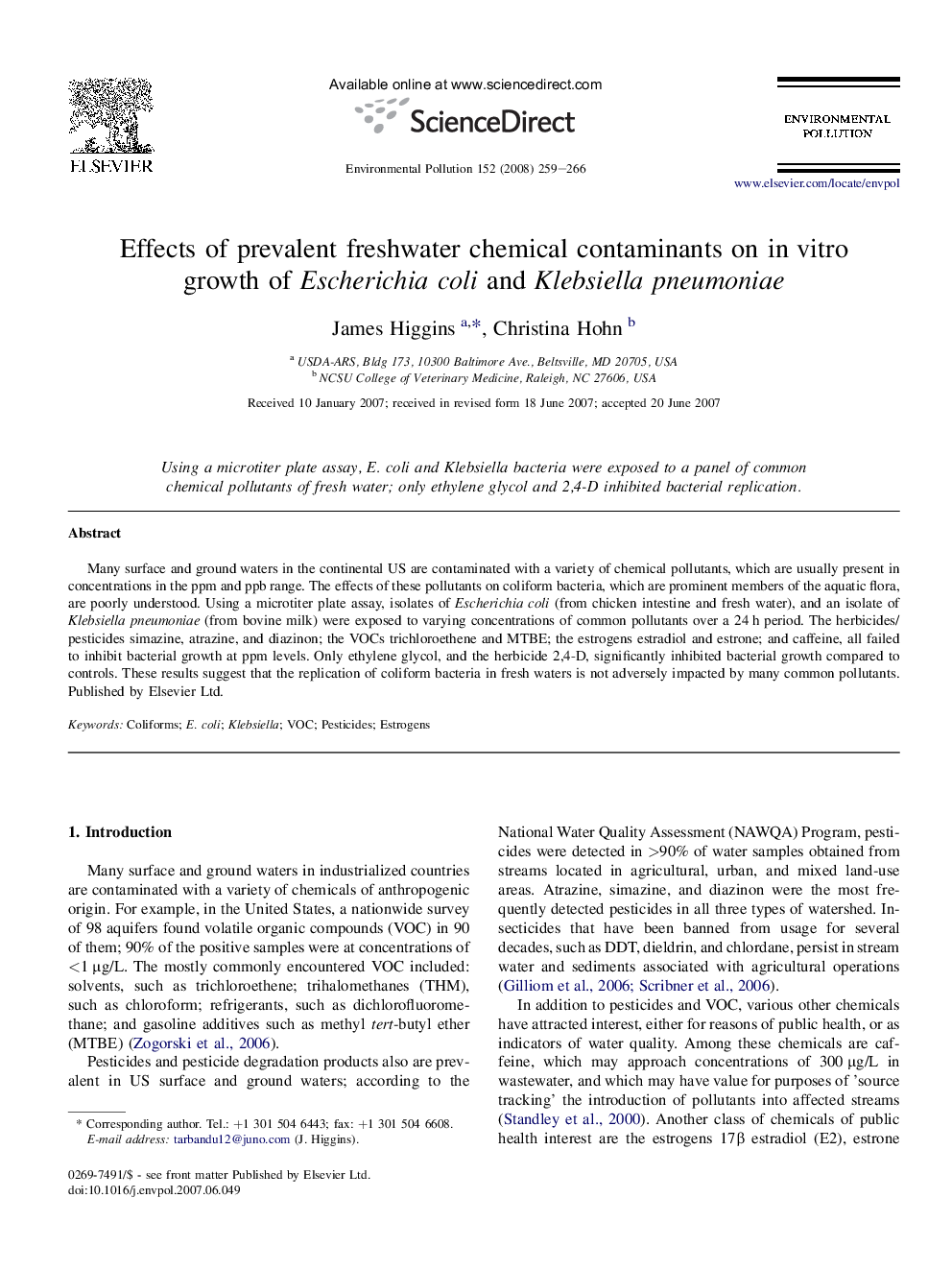| Article ID | Journal | Published Year | Pages | File Type |
|---|---|---|---|---|
| 4427191 | Environmental Pollution | 2008 | 8 Pages |
Many surface and ground waters in the continental US are contaminated with a variety of chemical pollutants, which are usually present in concentrations in the ppm and ppb range. The effects of these pollutants on coliform bacteria, which are prominent members of the aquatic flora, are poorly understood. Using a microtiter plate assay, isolates of Escherichia coli (from chicken intestine and fresh water), and an isolate of Klebsiella pneumoniae (from bovine milk) were exposed to varying concentrations of common pollutants over a 24 h period. The herbicides/pesticides simazine, atrazine, and diazinon; the VOCs trichloroethene and MTBE; the estrogens estradiol and estrone; and caffeine, all failed to inhibit bacterial growth at ppm levels. Only ethylene glycol, and the herbicide 2,4-D, significantly inhibited bacterial growth compared to controls. These results suggest that the replication of coliform bacteria in fresh waters is not adversely impacted by many common pollutants.
